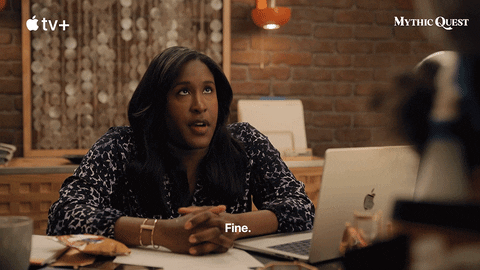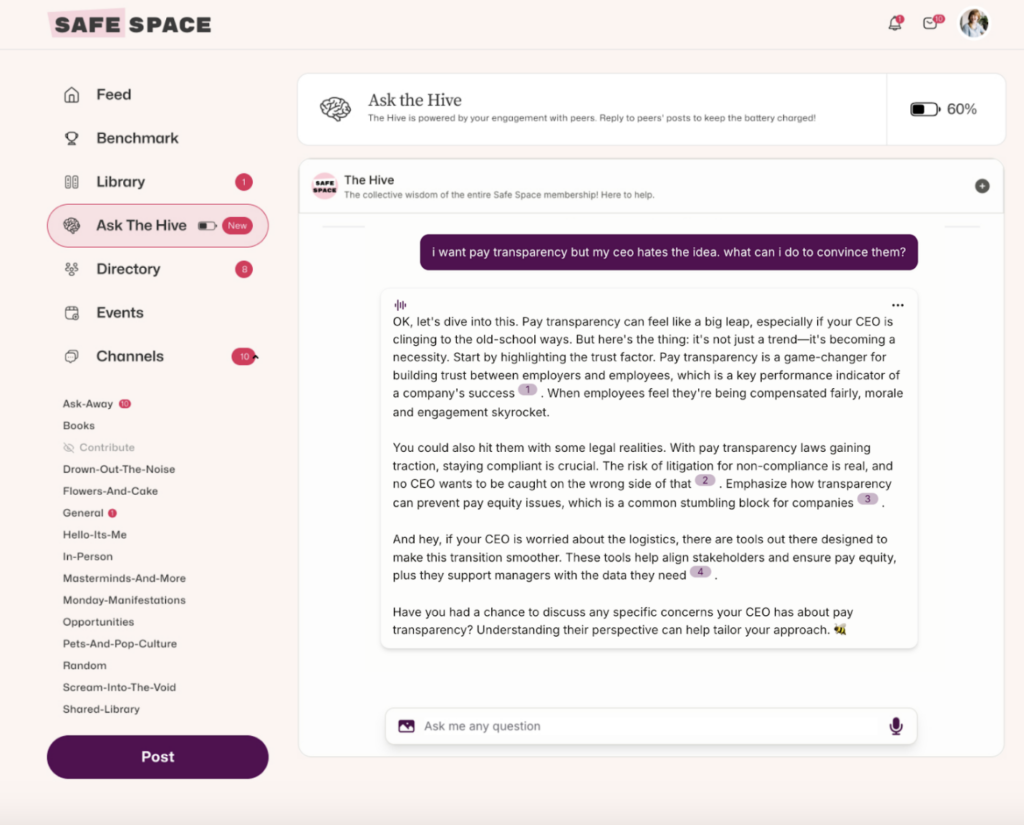
The first panic attack I had was because of work.
I remember being so scared and not understanding what was going on. I had never felt this way before but something had been building for months. The pressure of the job, the unrealistic demands from my boss and the lack of support from the HR team was the perfect storm. My throat tightens just thinking about that period of my life.
At the time, I worked in a somewhat toxic environment and my mental health was suffering.
There was a terrible stigma around mental health and admitting you could be struggling. I had no one to tell about my struggles and I believed if I was vocal about my struggles that my career would be impacted.
That stigma is very dangerous and it often stops folks from asking for the help they need.
With the pandemic we have seen a change in the discussion around mental health. Due to the multiple stress factors of the pandemic we saw a 25% increase in anxiety and depression which brought mental health to the forefront of the conversation and impossible for employers to ignore.
How mental health impacts work:
It’s impossible to talk about mental health without discussing the impact of work on our mental health.
A few things at work that negatively impact mental health:
- Performance pressure: over-indexing on high performance and disregarding the day/day fluctuations of performance. Demanding high performance from your employees but giving them zero support is a huge no-no.
- Job insecurity: the economy and layoffs are stressing out your employees more than you think. It’s crucial at this moment to transparently address the state of business and the economy’s impact on your company. If layoffs are on the horizon do not hide this from your employees or worse LIE. Employees can smell the bs.
- Bad management: a bad manager can be so harmful. The sad thing is most of us have at least 1 experience with a bad manager. Hence why I’ll never stop talking about training your managers.
The signs that your employees could be struggling with their mental health:
- Engagement: We’ve all seen the stats, engagement is down for the first time in over a decade. At the same time as mental health issues are on the rise… the connection is undeniable. It’s hard to be engaged in your work when you’re focused on navigating your mental health. If you noticed your employees are disengaged start with asking them how they are and go from there.
- Communication struggles: Have you ever wanted to respond to an email with: go away? Because, same! Navigating comms when you are struggling can feel impossible. If you notice that your employees are short in their communication that could be an indicator. BTW, tone is impossible to determine from written text so don’t jump to conclusions without a conversation.
- Poor decision making: Did you know that poor mental health leads to lack of impulse control?? That explains a lot from my personal experiences! Poor decision-making can show up as missed deadlines, canceled meetings or dropping commitments. If you notice this in your employees again start by asking them how they are.
So we know what can cause poor mental health AND how that can impact the work but what can you do to help your employees?
The answer is a lot of things!
How to support the mental health of employees:
There are a lot of ways to support your employees and their mental health!
Here are 3 tips to consider on how to support your employees and their mental health.
1. Train your managers on mental health and how to support employees: A manager might be the first person to come in contact with an employee that is struggling. It is important that all managers are trained on signs of emotional distress so they can be supportive.
Pro-tip: if you see an employee that is visibly stressed or upset you can suggest things like taking a break, going for a walk or shutting down for the day.
I cannot stress this enough, asking folks how are you and actively listening to someone’s response is a must.
JOIN 150K+ HR LEADERS
Get insights, learnings, and advice on how to build companies and cultures that people actually love.
No spam. Unsubscribe any time.
2. Establish an Employee Assistance Program (EAP). These programs are confidential, available to employees at no extra cost, and connect employees with professionals who can help. Many EAPs are made available to family members which can be incredibly helpful.
Pro-tip: educate your employees about these resources so they know all the support that is available to them!
3. Address workplace stress. Workplace stress contributes to mental health and wellbeing. There are a few things that can cause workplace stress:
- Impossible workload (been there!)
- Intense pressure to perform
- Job insecurity (very relevant right now with layoffs)
- Long working hours
- Office politics/conflict
Keep those common stressors in mind when you’re thinking about how to support your employees. Each stressor has a different path and solution.
How to take care of yourself while working in HR:
This section is for you. Yes, you. The brilliant HR person who pours your heart into everything you do. The tired, the weary, the over-committed.
I see you.
Are you taking care of yourself? Be honest. There are days I am terrible at taking care of myself. Instead, I default to taking care of everyone around me putting my own mental health on the back burner.
Over the years I’ve devised 3 things I do to improve my mental health.
1. Define my stressors. For me the absence of breaks, lack of expectations, poor communication, and lack of effort contribute to my stress. With those in mind, I actively work to eliminate those stressors in my life.
What that looks like in practice:
- Building in breaks in my schedule for eating, walking, and just having downtime to scroll throughout the day.
- I try to constantly set expectations and ask “what do you need from me?”
- Communication is always a work in progress for me but this starts with asking folks what their default is (verbal vs written) and appreciating how they want to be communicated with
2. Unplug. I love working but that can’t be my entire life. I try to fill my hours outside of work with things that inspire, excite and recharge me. From making time for the gym/healthy activities, adding a new book to my reading list, or roller skating with my best friend!
I know I’m struggling when the things that usually give me joy aren’t regularly happening. That’s my clue to make time and intentionally plan something.
3. Getting professional help. There is nothing wrong with admitting you need help and candidly, it has personally taken me a long time to admit I need help. Your EAP or insurance will be a great place to start to find resources.
Pro-tip: Finding a therapist that you vibe with is like dating. Try a few out and find someone you are comfortable with. I’ve had to meet with a few folks before I found my go-to therapist.
Finally, a reminder: you are precious cargo.


